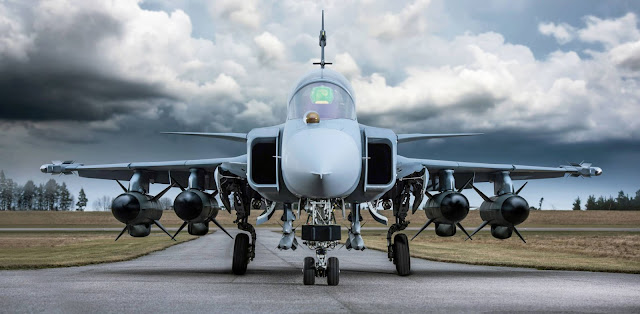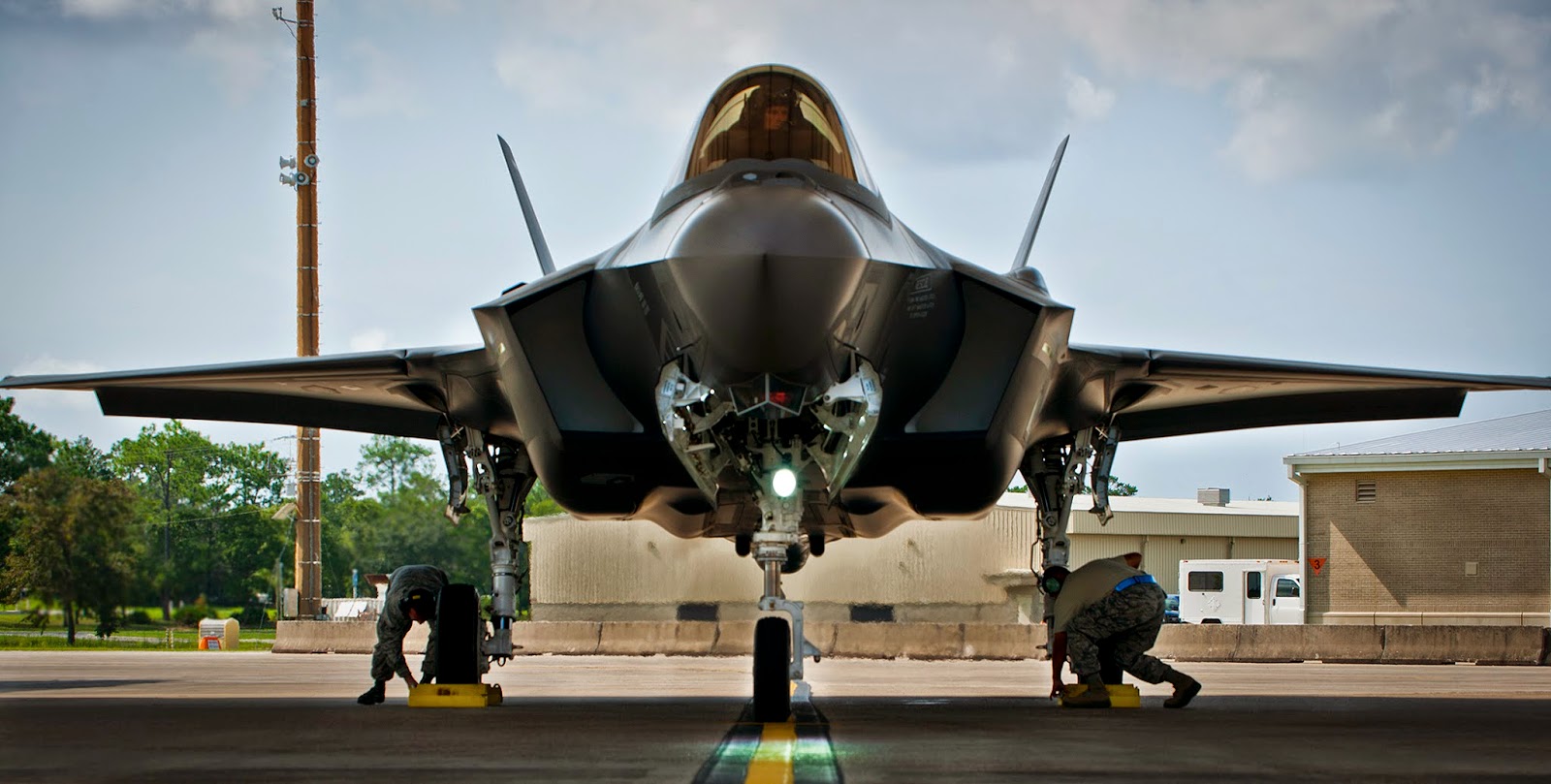Mythbuster: "Experts"
Captain Buster was never one to say know to a free lunch, especially lately. As his financial planner was fond of telling him, Captain Buster was much better at flying a CF-18 than managing his debt. While he was not exactly starving, his bank statements were not exactly heartwarming.
Besides, Captain Buster was looking forward to catching up with his old buddy, who had left the RCAF to join the private sector. Vought-Republic, one of the biggest defense contractors around, was picking up the lunch bill today. What Buster did not realize was that his friend would be bringing a co-worker...
"Thanks for meeting with us today, Buster. It's great seeing you again."
"Yeah, it really is good to have a chance to catch up. How has civvy life treating you?"
"Really good! I've just made junior vice-president. You should see my office, it's got a great view of the city."
"Wow."
"Let me introduce you to the man responsible. This is George Payola, my boss. He used to be in the USAF... Flew an F-4."
"Nice to meet you, Captain Buster, your friend here has nothing but good things to say about you."
"He's a filthy liar than!" Captain Buster joked.
Payola countered with a polite laugh. "We must admit to having a bit of an ulterior motive in asking you to lunch today... We're on a bit of a hiring drive and your friend here seems to think you would make a great test pilot for our new F/A-37. What do you think?"
"I don't know... I'm pretty happy where I am..." This was a lie. Captain Buster had just been passed over for yet another promotion, and he was getting sick of the cold winters.
"I hope you give us the chance to convince you." His friend interjected. "This job comes with a substantial pay raise, stock options, and we can set you up near our corporate offices in California."
That did sound good.
"All this for flying a plane?" It sounded almost too good to be true.
"We'll want you speak at airshows, do a few YouTube videos, that sort of thing. We look at our test pilots as a public relations resource as well. People would rather see a Chuck Yeager-type in a flight suit than some MBA in an Armani knock-off."
"Sounds easy enough... What the hell... I'LL DO IT!"
"GREAT! Now, before we get into the details, we need you to sign a few things..." Payola dumped a stack of legal documents on the table. "Just the standard conditions, non-disclosure agreements, non-compete agreements, security clearances... You know, the usual."
Captain Buster started having second thoughts...
 |
| Required reading. |
There really is no shame in admitting that a subject is too complicated for a layman to understand. When that time comes, it is only human nature to seek out those with a better understanding. This is especially true in the world of military aircraft, where cutting edge technology intersects with the world of top-secret "for your eyes only". To put it simply, much of the truth about modern-day fighter aircraft is beyond the reach of us mere mortals. This is where we must place our faith in the experts.
But who are these experts?
I have written about a few of these guys before. Whenever an in-depth conversation of fighter aircraft, especially the F-35, happens, these are the names that often come up: Flynn, Sprey, Wheeler, Thompson, and Sweetman. All have extensive knowledge on the subject, far more than that of your typical blogger (present company included).
So what happens when these "experts" disagree with each other?
 |
| Stewart all the way... |
We pick a side.
We do not pick a side at random. We pick the side that most reflects our own beliefs in the subject. We then use this as a resource to reaffirm our own beliefs in a process known as confirmation bias. If "Mister X" says that "Fighter A" is amazing and "Fighter B" is terrible, and we believe that ourselves, then we will begin to trust "Mister X" as an authority on the subject.
Ah... But what if "Mister Y" states that "Fighter A" is a colossal failure? Surely someone is wrong! If we agree with Mister X, than clearly Mister Y is an incompetent boob, then. At least, that is is what we would want to believe.
What if "Mister X" and "Mister Y" are both highly qualified?
Who do we trust?
 |
| Trust me! |
Everybody has bias. EVERYONE.
That does not mean we have to discount everything that everyone has to say. Instead, we simply need to listen (or read) more carefully in order to separate the subjective from the objective. Doing so is easier than you might think.
A subjective statement is one that is based on feelings, opinions, or personal bias. A statement like this is usually intentionally vague, or uses descriptors such as "I feel" or "I believe".
Here are some examples:
- "This jet feels like a rocket when it accelerates."
- "I believe this aircraft has the most advanced sensors ever."
- "I think this aircraft is a disaster."
None of the above statements can really be proved right or wrong, since they are dependent on the observer. An aircraft that feels like a rocket could still accelerate fairly slowly compared to others. Believing an aircraft has the most advanced sensors ever does not make it so. The aircraft does not become a disaster simply because the observer thinks it.
Objective statements are, quite simply, hard facts. They can be easily verified and are usually quite specific.
Some examples:
- "This jet takes 45 seconds to accelerate from Mach 0.9 to Mach 1.1."
- "This aircraft uses an AESA radar, IRST, and a helmet mounted display."
- "This aircraft is behind schedule and over budget".
Unfortunately, it is still possible to present a rather biased report using nothing but objective statements. This can be done by omitting certain key facts.
Here is an example.
Right from the beginning, we know that the video will be subjective rather objective, based on the part of the question which reads: "Based on your experience..." We will ignore that part for now, however.
In this video, Lockheed Martin test pilot Billie Flynn talks about the F-35's range. He makes several objective statements, all of which are true:
- The F-35 carries 50% more fuel internally than the CF-18.
- This does translate to a longer range and longer loiter time.
- Canada does have the largest coastline.
What is more important is what Flynn does not mention in the video:
- The F-35 cannot carry any fuel externally at the current time.
- The F-35 may carry more fuel, but does it burn more or less than the CF-18? 50% more fuel does not necessarily mean 50% more range.
- Which "4th generation fighters" he is referring to. (F-16s? F-15s? MiG-29s?)
By keeping things intentionally vague, Flynn shields himself from any disputes.
 |
| And it's not lupus. |
As a test pilot for the F-35, Billie Flynn can certainly be considered as an expert on the F-35. Flynn has a vested interest in its success however. Althouhgh he used to be commanding officer in the RCAF, he is currently employed by Lockheed Martin.
As many of you have experienced, employment with an organization often means more than a paycheck. Non-disclosure agreements, non-compete clauses, and other legally binding contracts are usually part of the deal. Most organizations expect their employees to act as public relations ambassadors on top of their normal duties, and many have strict rules regarding media communications.
Therein lays the catch-22. Those with the most access to the information are often the least able to talk honestly and candidly about it. That leaves the rest of us scrambling for whatever scraps of information we can get in order to form our own objective opinions.
What about myself?
I can truthfully say: I am no expert. My only access to information is Google and the links graciously provided to me by the commenters here and in the Facebook group. I started this whole blogging thing on a whim and it still amazes me at the response I have gotten.
Like many of you, I have had a life-long fascination with fighter aircraft. I have friends and family that are (and have been) active members in the Canadian Forces, including the RCAF. I read... A lot. While struggling to find my place in life, I studied both engineering and journalism. I then said to hell with both and went into medicine.
These three seeming separate disciplines overlap more than you might think. They also form the basis on which I form my opinions.
- Engineering encourages one to analyze, calculate, and quantify. It also gives one a basic understanding of how materials interact when subjected to force.
- Journalism encourages one to research and "dig deeper"... It also allows one to identify "PR speak".
- Medicine encourages the use of evidence to back up any hypothesis or claims.
Experts are a dime-a-dozen. It is not too hard to find a so-called "expert" on any given subject. It is often just as easy to find an expert willing to take an opposite position (this seems to be the business model of most 24-hour news networks).
Facts are precious commodities. Facts allow each and everyone of us to form our own opinions based on the evidence provided. The great thing about having your own opinion is that you are free to change it at any time, especially when presented with new facts.
After a while, you may find yourself armed with enough facts to become an expert yourself...





Comments
Post a Comment